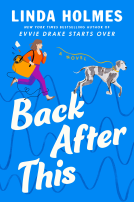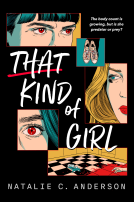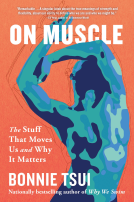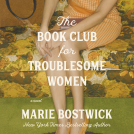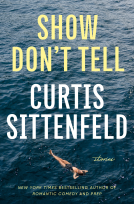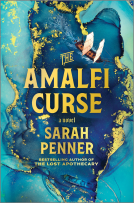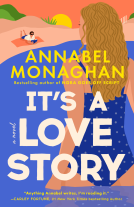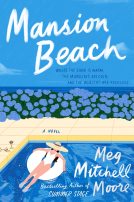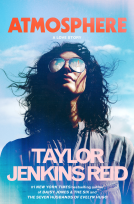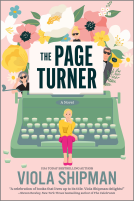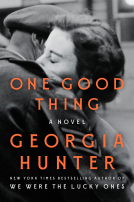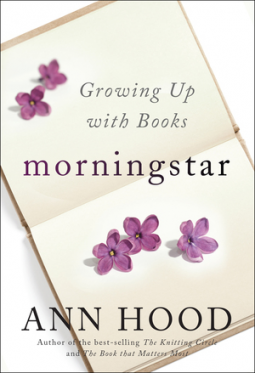
Morningstar
Growing Up with Books
by Ann Hood
This title was previously available on NetGalley and is now archived.
Send NetGalley books directly to your Kindle or Kindle app
1
To read on a Kindle or Kindle app, please add kindle@netgalley.com as an approved email address to receive files in your Amazon account. Click here for step-by-step instructions.
2
Also find your Kindle email address within your Amazon account, and enter it here.
Pub Date Aug 01 2017 | Archive Date Jul 31 2017
Description
A Note From the Publisher
LibraryReads nominations due by 6/20.
Available Editions
| EDITION | Other Format |
| ISBN | 9780393254815 |
| PRICE | $22.95 (USD) |
| PAGES | 160 |
Links
Featured Reviews
 Toni N, Librarian
Toni N, Librarian
4.5 blissful reading stars!
This book reminds me of my childhood, just four years earlier. Almost everything Ann remembers reading, or doing as an adolescent in the awkward years of tweenager-hood, I can recall as well. My parents weren't Italian immigrants, but one generation removed, so not far from some traditions. This book may not be for everyone, but if you grew up, loving to read books, loving libraries, (and I suspect there are a few on GRs and Netgally), then you'll enjoy this book. Ann is so in tune with her emotions when reading each book, whether she's home in her room , where her "parents could never understand her," or in her dorm room in college. I can remember thinking at 18 or 19 years old, "I'm the only person who truly understands this book!" Or, "this author is speaking directly to me." Was it just women who thought this way at this young age? Maybe not. I highly recommend this book to ALL who love books.
 Leanne M, Librarian
Leanne M, Librarian
Book nerds unite! Ann perfectly captures the magic, the allure and the special place that certain books play in our lives. Like a song, they can call to memory a particular moment in time and shape an entire lifetime. Ann Hood illustrates the special role books have played in her life on every page.
 Kathleen C, Reviewer
Kathleen C, Reviewer
I love reading books, and I love reading books about reading books. As an amateur reader I am fascinated by bibliomemoirs.
Some writers concentrate on a memoir of a single year or period of personal reading; others focus on a gimmick (reading all the books on one library shelf, or a book a day) or a single author’s influence . One of my favorites is Susan Hill’s “Howards End Is on the Landing,” a brilliant book about her year of reading only books on her shelves. When my mother was in the hospital in 2011, I was so inspired by Hill’s chapter about Iris Murdoch that I dashed around the corner to Murphy-Brookfield, a used bookstore, to find a copy of “The Bell.” And that kept me going through a couple of days when my mother lay in bed watching TV at the loud level she needed to hear anything at all.
In “Morningstar: Growing up with Books,” the novelist Ann Hood has written a graceful, inspiring memoir of her childhood reading. (The book will be published Aug. 1.) And she has me searching for my copy of “Marjorie Morningstar” to read this weekend. (It’s here, in a box, somewhere.) She grew up in an Italian-American working-class family in a small town in Rhode Island. Although her parents didn’t own books, her aunts, uncles, and cousins gathered at the kitchen table on weekends and told stories. She learned “that you had to earn your place at that table. Your story had to start with a hook, include vivid details, have strong characters, and be full of tension or someone who talked louder and could tell her story better would overpower you.”
But Ann was bookish, and she wanted literary stories, too. She didn’t have access to many books: the Italian neighborhood’s library was in a moldy basement, and the school didn’t have a library. When her cousin lent her a copy of “Little Women,” it changed Ann’s life. She lost herself in the story. She writes, “All these years later I recognize how magical this experience truly was. I wanted to live inside a book, and this was the first time I really did.”
Ann and I are of the same generation, and my parents didn’t read books, either, so I understood her experience perfectly . One thing we absolutely agree on: it was necessary to read the yellow-spined Nancy Drew books. Ann saved her allowance and spent it on the Nancy Drews at the second-hand store, much to her mother’s disapproval; and after my mother had a showdown with a librarian who refused to order “badly-written” series books, my mother was determined to save money so I could gradually acquire a nearly complete set.
As adolescents in the early ’70s, Ann and I, in our different parts of the U.S., listened to Simon and Garfunkel, strung beads, and were fascinated by the counterculture. Sylvia Plath’s “The Bell Jar” had a powerful effect on Ann . I love her delicate description of the book’s design.
She wrote,
“The summer of the beads, I read ‘The Bell Jar.’ I remember the cover. A pink so pale it almost looked white. The black letters with their curlicued T and B and J. The red rose stretched across the edge. Unaware as I was of things like book reviews, I didn’t know that the book I’d plucked from the library shelf was a new one, just published in the United States. I didn’t even know—though surely this was in the author’s bio—that Sylvia Plath had committed suicide on February 11, 1963, just a few weeks after ‘The Bell Jar’ had been published by Harper & Row in Britain under the pseudonym Victoria Lucas.”
With just a few strokes of the pen she describes a book cover I had forgotten, though I had the same edition, and I was able to identify it on google immediately. Plath’s heroine Esther, who won a contest to be a “Mademoiselle” writer, may have inspired Ann, who became a Marsha Jordan girl, one of eight models for a Boston department store, and then won a contest to be a teen editor for Rhode Island for “SEventeen.”
But of all the books she read, Herman Wouk’s “Marjorie Morningstar” was her touchstone. She read it when she was 15 in 1972 and reads it every year. Marjorie’s big Jewish immigrant family reminds Ann of her big emotional Italian immigrant family. Marjorie defies her parents by becoming an actress and embarking on a sexual relationship with the director, Noel Airman. Ann understood Marjorie’s longings, as Marjorie stood in the snow staring at the apartment of the man she loved. Ann’s heart had been broken by Peter Hayhurst, and she sometimes stops the car and looks at his house.
“And I have reread it almost every year since. As an adult, I saw the similarities between the Morgensterns and my own family. Marjorie’s father had come to the United States at the age of fifteen, “a fleck of foam on the great wave of immigration from Eastern Europe.” I lived with a dizzying array of Italian immigrant relatives. In the novel, Mr. Morgenstern owned the Arnold Importing Company, “a well-known dealer in feathers, straws, and other materials for ladies’ hats.” Like my own father, who commuted several hours every day to his job in Government Center in Boston so that we could rise above our blue-collar immigrant roots.”
I am posting this too early–consider it a pre-review–but it really is the perfect book to read on a holiday weekend. I also very much like her novels, which are hard to classify. I think of them as women’s novels, but my husband enjoyed her latest novel, “The Book That Matters Most” (more or less about how reading saves a grieving wife and a drug-addicted daughter). I have followed her career from the ’80s, and it is always a pleasure to read a new book by her.
 Donna B, Librarian
Donna B, Librarian
I really enjoyed this book. I've read many of the books Hood writes about so it was like sitting around a kitchen table with an old friend discussing books we've loved & that have shaped who we are. I'd recommend it to anyone who loves to read, especially readers born in the 1960's or early 1970's. There are many memories growing up in the early 1970's that are quite touching.
 Reviewer 238609
Reviewer 238609
"Morningstar: Growing up with Books" by Ann Hood tells of the authors' love affair with books as a child and the books that shaped her.
Each chapter tells us about a book that impacted the author in her life and how it shaped the way she saw the world. We are told of Sylvia Plath's "The Bell Jar" and John Steinbeck's "The Grapes of Wrath."
In reading "The Grapes of Wrath" the author learns about writing. Through books the author learns how to love language and how to see the world among other things. This book is beautifully written. I would recommend it to anyone who loves books and memoirs about them.
I acknowledge that I received this book free of charge from NetGalley in exchange for my honest and unbiased review.



